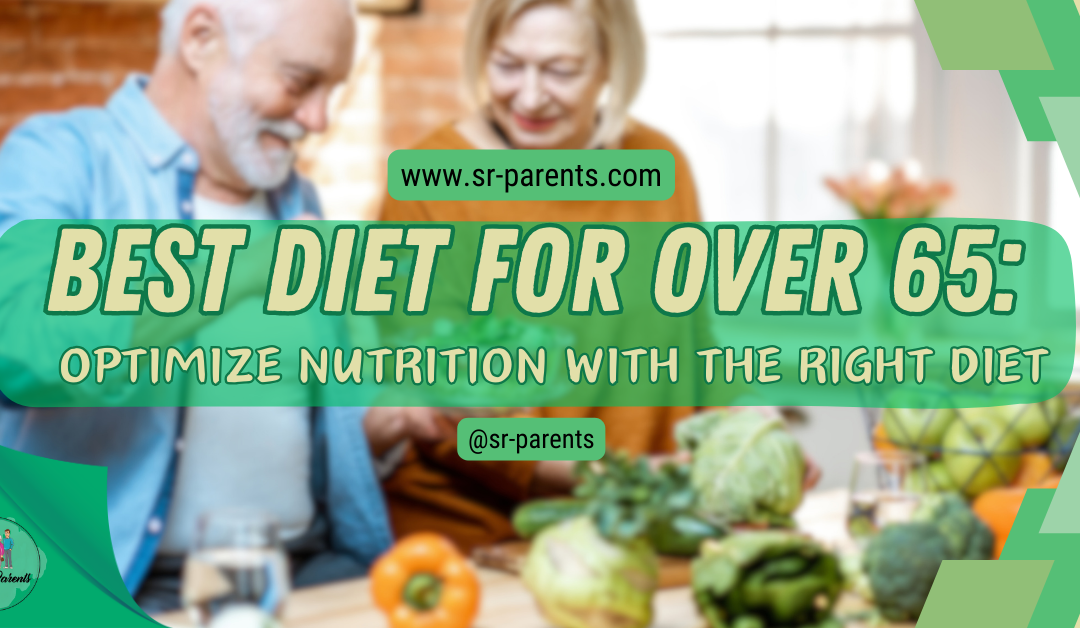Contents
Best Diet for Over 65: Optimize Nutrition with the Right Diet
Ever wonder how to stay healthy as the years roll by? You’re not alone! This article is here to help. I have crafted it, especially for folks like you who want to make the most of life. Get ready to discover the best diet for over 65 and unlock the secrets to feeling fantastic every day.
Ready to dive in?
Let’s go!

Healthy Foods for the Elderly / Flickr / R. D. Barry
Discovering the Best Diet for Over 65
As we age, our dietary needs shift, especially past 65. This truth hit home when I visited my grandma last summer.
Sitting in her kitchen, sipping tea and munching on cookies, she shared her struggle with eating right as she got older.
Her stories got me thinking: What’s the best diet plan for old age above 65?
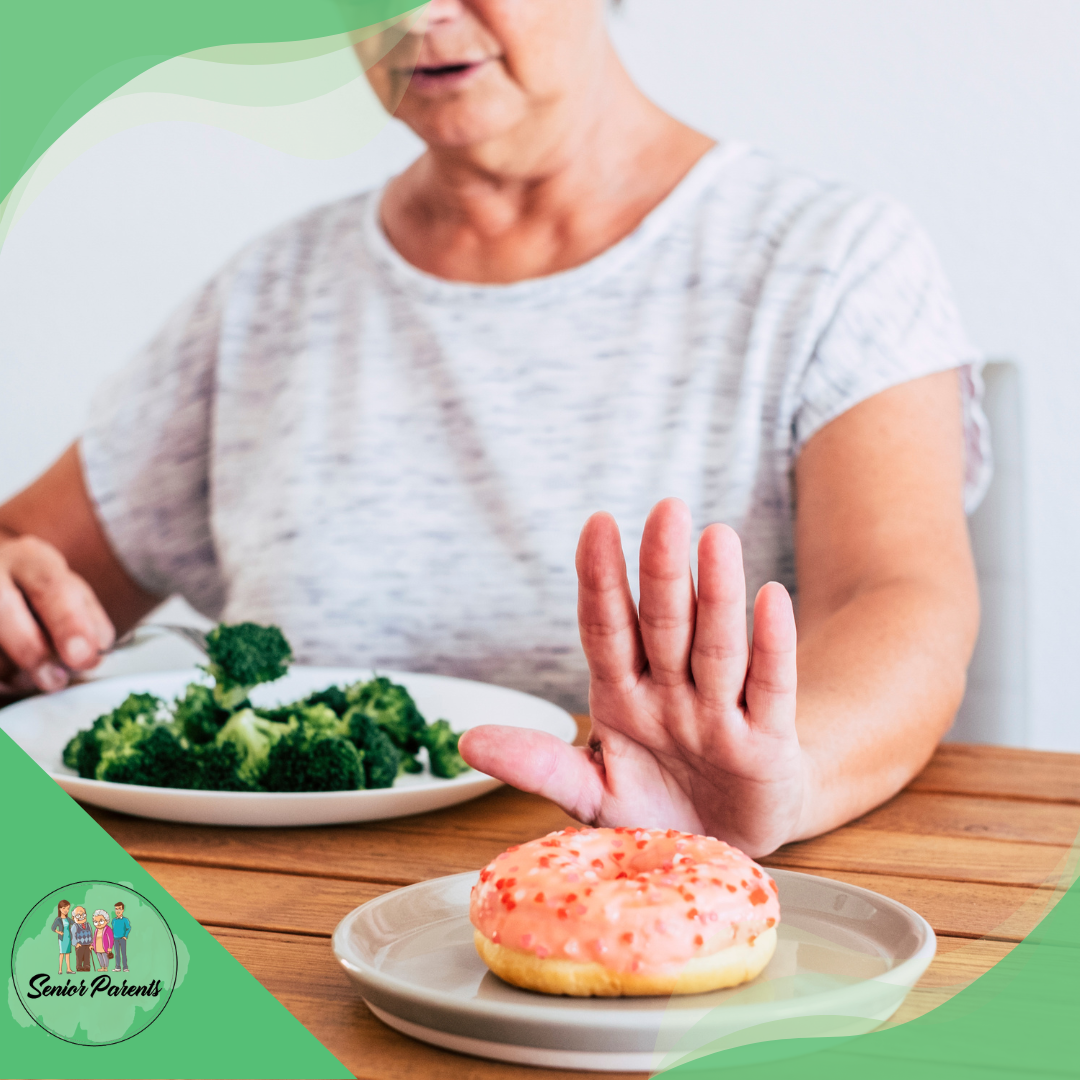
Through research, I discovered food’s vital role in maintaining health and vitality in later years.
Join me as we explore simple yet effective ways to optimize diet for elderly people.
From easy recipes to practical tips, I tried to inspire seniors and their loved ones to embrace a healthy diet and nourishing lifestyle in their golden years.
In This Article:
- Understanding senior nutrition and why it matters.
- Nutrition by age: What nutrition is required for different age groups?
- Practical tips for healthy eating in your golden years.
- Navigating dietary challenges: Common concerns and solutions.
Best Diet for Over 65: The Importance of Understanding Nutritional Needs
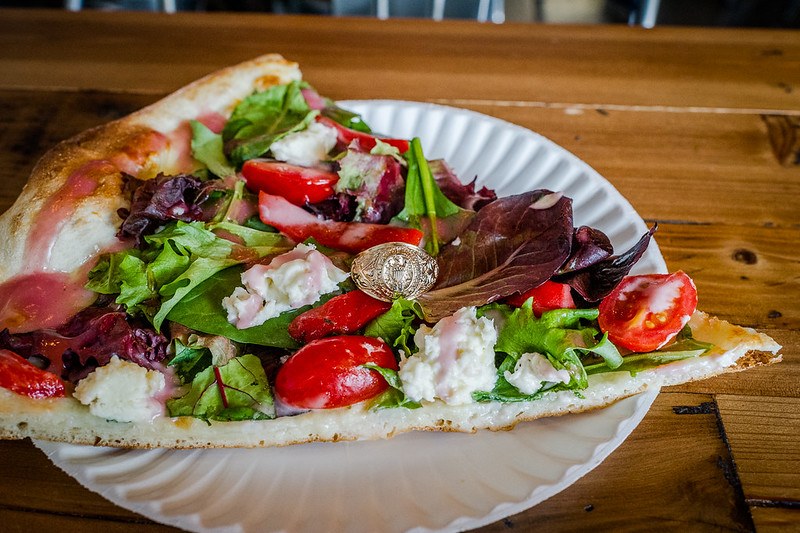
Healthy Foods for Older Adults / Flickr / Jazz Guy
Healthy eating is like fuel for our bodies; as we age, giving our bodies the right kind of fuel becomes even more vital.
Let me share a story about my grandpa. He used to be energetic and always ready to play with us. However, as he got older, we noticed he wasn’t as active and seemed more tired.
That’s when we learned about the power of a healthy diet for seniors. See, as we age, our bodies change.
We might not need as many calories, but we need more of certain nutrients to keep us healthy and robust. Things like calcium for our bones and protein to keep our muscles working well.
When my family started paying more attention to what Grandpa was eating, we noticed a big difference. He started having more energy again and even joined us for walks in the park.
It was like he found a new lease on life, all because we understood how essential healthy eating is for seniors.
So, understanding senior nutrition is more than just knowing what foods to eat. It’s about realizing how healthy eating can help us live our best lives, regardless of age.
Now, before we delve into the best diet plan for old age above 65, let’s learn about what nutrition is required for different age groups!
Nutrition by Age: Crafting the Best Diet for Seniors
It is critical to know how healthy eating changes with age. Our bodies need varying nutrients as we age to support growth, development, and aging.
Adding healthy foods to create a balanced diet becomes even more crucial as we age. It helps us meet our nutritional needs and support optimal health.

Embracing a healthy dietary pattern is the same for men and women. It means eating more fruits, vegetables, whole grains, legumes, and nuts. Conversely, limit your sodium, sugar, and saturated fat intake.
However, there are some critical differences between men and women regarding specific nutrients because of their hormones.
For example, women lose iron through menstruation, so they need more iron in their diet. Men, on the other hand, usually have more muscle mass and faster metabolisms because of testosterone. This means they need more protein, specific B vitamins, and zinc.
Eating healthy is essential, whether you are a man or a woman. A healthy diet keeps our immune system strong, prevents bone and muscle loss, and keeps our eyesight sharp. It also protects our body cells from damage caused by free radicals.
Here is a guide to help you ensure you eat healthy and get all the crucial nutrients you need as you age.
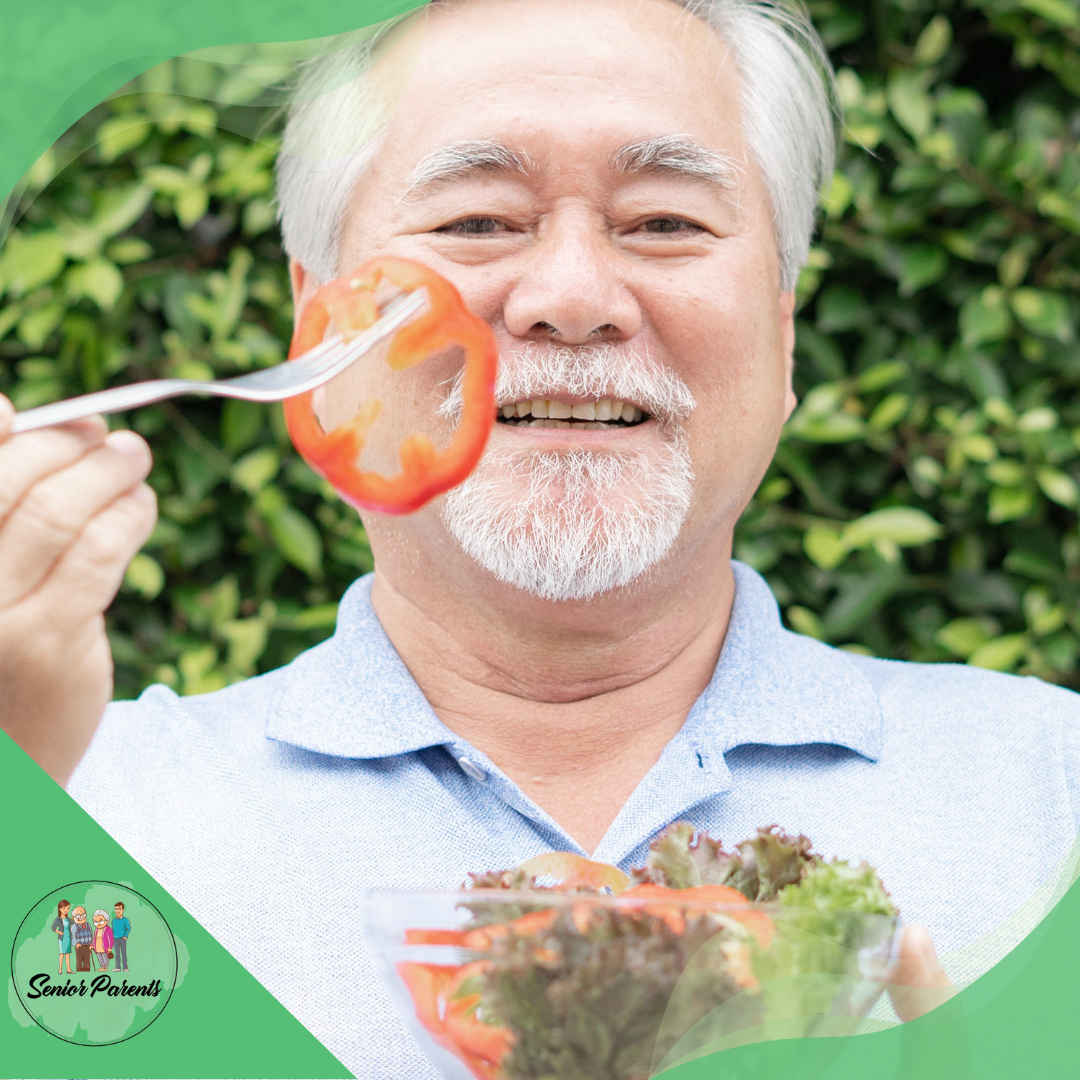
Essential Diet in Your 20s: Calcium, Folate, and Iron for Vitality

Best Healthy Foods for 20s
Both men and women continue to strengthen their bones until their mid-20s. However, this process takes longer than younger adults.
Getting enough calcium daily is crucial for reaching peak bone strength. This can help protect against issues like osteoporosis and fractures later in life.
The goal for both men and women is to get 1,000 mgs of calcium each day. Low-fat Milk, yogurt, cheese, and fortified non-dairy drinks contain calcium.
In addition, canned salmon, tofu, almonds, and green vegetables like broccoli and spinach contain enough calcium.
Moreover, folate is another critical component for making and repairing DNA. Everyone needs 400 micrograms (0.4 mg) of folate every day.
However, women planning to have a baby should pay extra attention to folate to prevent congenital disabilities that can affect the brain and spinal cord. Foods like spinach, broccoli, lentils, black beans, and avocado are packed with folate.
Furthermore, iron is also critical for metabolism. It gives oxygen to muscles, helps us concentrate, and makes hormones and tissues.
Men need eight mgs of iron daily, while women need 18 mgs to compensate for the iron they lose during menstruation. Your plate should have oysters, lean meats, breakfast cereals, soybeans, lentils, spinach, prunes, and raisins for iron.
Managing Calories and Nutrients: Dietary Strategies for Adults in Their 30s
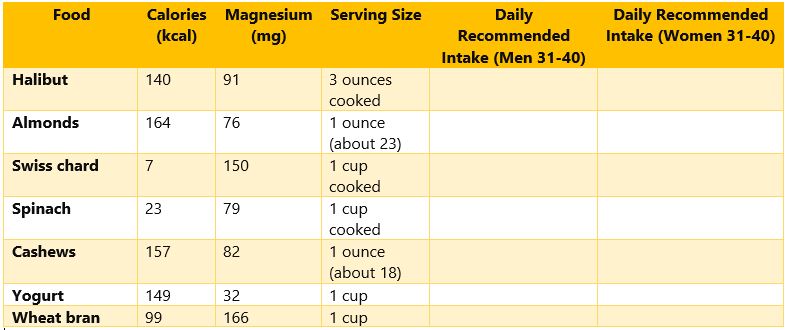
Best Foods for 30s
In this decade of life, your body’s metabolism slows down, and you might notice a decline in muscle mass. This means your calorie needs decrease.
If you continue eating like you did in your 20s, you might experience weight gain. Consider incorporating strength training and enough lean protein into your routine to combat this.
Every year after turning 30, men need about ten fewer calories daily, and women need seven fewer calories. By age 40, men should aim to consume 100 fewer calories daily, while women should aim for 70 fewer.
Reduce your diet’s refined starchy foods, sweets, and added sugars to manage calories. However, continue prioritizing foods rich in calcium, folate, and iron.
Moreover, magnesium is crucial for energy production. It regulates blood pressure and sugar levels and maintains strong bones. As you enter your 30s, both men and women need more magnesium.
Men should aim for 420 mg daily, while women should aim for 320 mg. You can boost your magnesium intake with halibut, almonds, Swiss chard, spinach, cashews, yogurt, and wheat bran.
Antioxidant-Rich Diet in Your 40s: Aging Well with Smart Food Choices

Best Diet for 40s-50s
In your 40s, eating foods with antioxidants is essential to stay healthy. Even though your body’s basic needs don’t change much, choosing foods with antioxidants becomes even more vital with age.
As someone in their 40s, I have learned that fruits like citrus, berries, and kiwi, as well as veggies like broccoli and Brussels sprouts, are packed with vitamins C and E. These antioxidants help you fight off harmful free radicals.
In addition, nuts and seeds like almonds and sunflower seeds are also among healthy food groups and a rich source of antioxidants.
Choosing whole foods instead of dietary supplements is better because you also get fiber and other good stuff that helps your body.
Prioritizing Vital Nutrients: Calcium, Vitamin D, and B12 for Ages 50 and Beyond
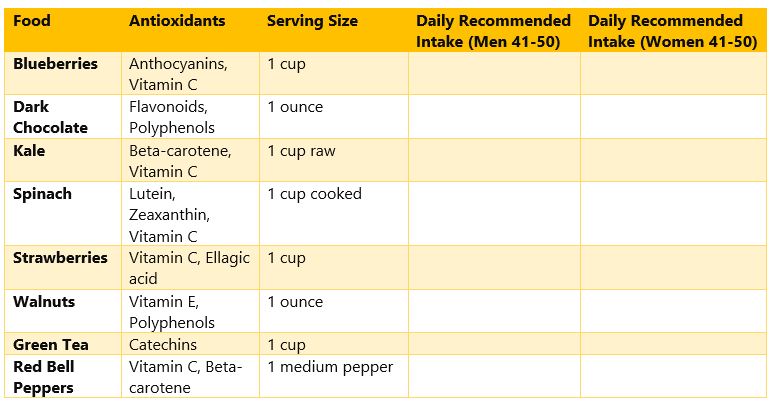
Best Foods for 50s and Beyond
As you enter your 50s and beyond, focusing on nutrients to support your health is crucial. The best diet for women is to get calcium daily. It is essential to counter the rapid bone loss that often happens after menopause.
However, men should only increase their calcium intake once they reach 71 when bone loss becomes a more significant concern.
Moreover, vitamin D is another essential nutrient in your diet plan for old age above 65. Men and women have more difficulty making enough vitamin D from sunlight with age.
The recommended amount of D vitamin increases to 800 IU at age 70. However, many experts suggest adults over 50 take 1,000 to 2,000 IU daily to ensure they have enough.
Moreover, vitamin B12 is also crucial, especially after 60. This vitamin helps to build red blood cells, nerves, and DNA.
But what if you have trouble absorbing enough vitamin B12 from food due to reduced stomach acid, like most aging adults? Well, you can take a multivitamin to ensure you are getting enough.
Video Credit: Wellcare by Allwell
Practical Healthy Eating Tips in Your Golden Years: Senior Wellness Guide
While crafting the best diet for over 65, keep these simple tips in mind:
- Decorate your plate with a variety of healthy eating. These include colorful veggies, fruits, whole grains, nuts, and lean meats.
- Stay hydrated and consume at least six cups daily.
- Eating foods high in saturated fats is bad for your health. These include biscuits, cakes, pastries, pies, and processed meats. Also, avoid fried foods, burgers, pizzas, potato chips, and other savory snacks.
- Replace unhealthy saturated fats with healthy fats. Choose oils, spreads, nut butter, avocado, and pastes over butter, cream, margarine, coconut, and palm oil.
- Keep your body strong and at a healthy weight by staying active. Walking is an excellent activity for older adults.
- Cut down on foods and beverages with extra salt. Extra salt can increase your risk of heart disease and high blood pressure. So, avoid adding salt while cooking or at the table.
- Keep sugary treats like candies, sweetened drinks, and energy drinks to a minimum.
- Limit your intake of “extras” or occasional treats—they shouldn’t be a regular part of your diet. These include high-sugar, high-fat, and high-salt foods like burgers, pizza, and sweets.
Maintaining a healthy diet plan for adults over 65 can have ups and downs. However, with some simple strategies, many common concerns can be fixed.
Here are some common issues older adults may face with their diet, along with practical fixes:

- With age, our appetite may decrease. To ensure you get enough nutrients, focus on eating smaller, nutrient-packed meals throughout the day.
- Problems with teeth or dentures can make chewing uncomfortable. Choose softer foods like cooked vegetables, lean meats, yogurt, and smoothies. These foods make eating easier.
- Trouble swallowing can make eating certain foods difficult. So, try pureeing fruits and vegetables or thickening liquids to make them easier to swallow. You may also consult with your speech therapist or dietitian for personalized advice.
- Aging can affect digestion, causing constipation or indigestion. So, consume plenty of fiber from fruits, vegetables, whole grains, and legumes. In addition, drink lots of water to keep things moving smoothly.
- Feeling lonely can impact your eating habits. So, staying connected with friends, family, and community groups is essential. In addition, socializing over meals can also make eating more enjoyable.
- A tight budget can make it hard to afford nutritious foods. So, look for ways to save money on groceries. One way is to buy in bulk. You can also take advantage of sales. Community resources like food banks can also assist.
Conclusion: Your Customized Diet Plan for Old Age Above 65
As we end our journey through the best diet for adults over 65, let’s remember one thing: eating right is more than filling our tummies. It is about keeping our bodies strong and happy.

We have talked about facing food challenges and picking up handy tips for healthy eating. So, let’s keep munching on those colorful fruits and vegetables, drinking plenty of water, and asking for help when needed.
Whether you are enjoying your golden years or just aiming for better nutrition, make every meal a celebration of health and joy. Cheers to good food and good living!
FAQs
What is a healthy body weight for a 60-year-old adult?
A healthy weight for a 60-year-old adult varies. In general, a BMI between 18.5 and 24.9 is considered healthy. BMI divides weight by height squared. However, BMI doesn’t consider muscle mass or bone density changes with age.
What are the different food groups?
There are five main food groups. These include:
- Fruits: Examples include apples, oranges, bananas, and berries.
- Vegetables: Examples include spinach, carrots, broccoli, and bell peppers.
- Grains: Examples include bread, rice, pasta, and oatmeal.
- Protein: Examples include chicken, fish, beans, tofu, and nuts.
- Dairy: Examples include milk, cheese, yogurt, and fortified plant-based alternatives.
What are the unique nutritional needs at different stages of life, known as "nutrition by age"?
Nutrition by age means the specific kinds of food our bodies need as we grow up. For example, babies need breast milk or formula, while kids need lots of fruits and veggies to stay strong. Teenagers should eat foods rich in calcium and iron for healthy bones and energy. Similarly, adults should have a balanced diet to prevent illnesses. A diet plan for old age above 65 should include extra-nutritious foods.
Welcome to Senior Parents!
Welcome to Senior Parents – Your Go-To Guide for Senior Care and Wellness!
Unlock the secrets to happy, healthy aging with our expert tips and practical advice.
From staying active to nurturing well-being, we’ve got you covered every step of the way.
Join our community today and make every moment count with Senior Parents!
Facebook: www.facebook.com/sr.parents
Twitter: twitter.com/senior_parents
Insta: www.instagram.com/seniorparents/
Pinterest: www.pinterest.com/seniorparents/

